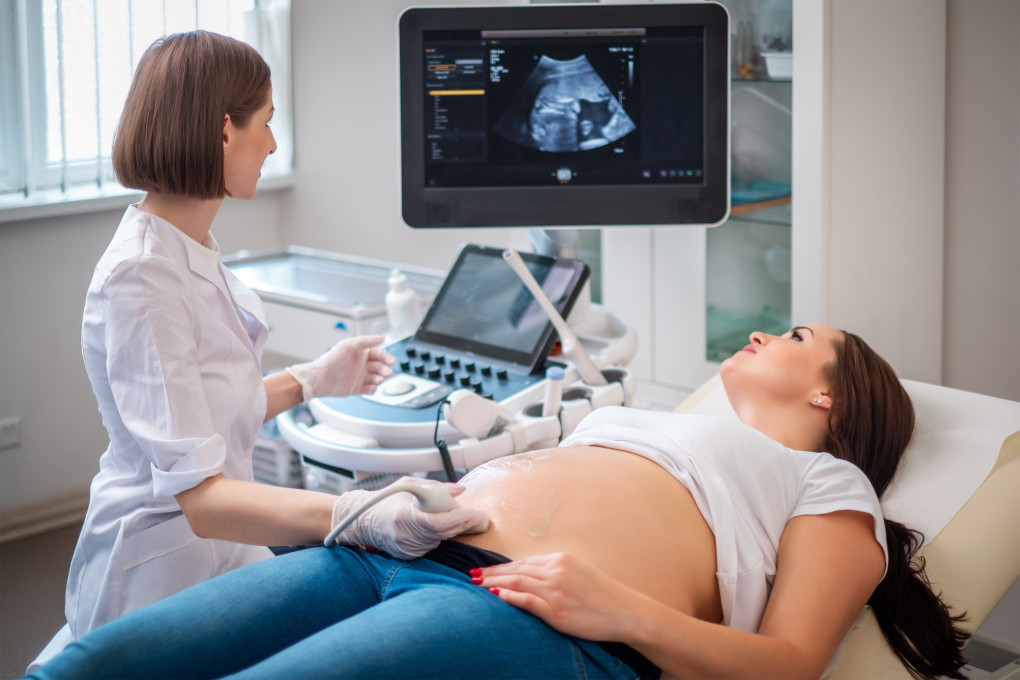The most common reasons to have an ultrasound in pregnancy are to determine the age of the baby, to confirm its wellbeing and to make sure the baby is growing normally. After 12 weeks gestation, the age is confirmed from calculations using the head, abdomen and upper leg measurements. The ultrasound scan can also identify fetal abnormalities as well as twins.

What your Sonographer does at your Pregnancy scan
The person who does your scan is a Sonographer and there are several different types of scans they complete throughout your pregnancy. During each scan we try to ensure your comfort although this can sometimes be challenging depending on the position of your baby. We discuss your pregnancy at each of your appointments to ensure you are kept informed and reassured.
Nervousness is often an emotion felt by expectant mothers, it is also felt by our Sonographers as they know from experience that not every scan has a normal outcome. We always hope there are normal findings and that the scan is a positive experience to share with you, however if the outcome is not positive we will do everything we can to provide you with the best possible care.
As you will appreciate, these medical appointments are very important and the quality of the scan is heavily dependent on the Sonographer being able to concentrate on performing them without too much interruption. Whilst our Sonographers do their best to explain what they are seeing on the screen, sometimes they need to remain quiet so they can focus entirely on your assessment.
Sometimes we are able to see the gender of your baby, however depending on baby's position, it is not always possible. Once your scan is finished we send all the information to your medical referrer to continue the care of your pregnancy. A keepsake copy of pictures can be requested at your scan and we are happy to provide these.

What is nuchal translucency measurement?
This prenatal screening test uses ultrasound to measure the clear (‘translucent’) space in the tissue at the back of the baby’s neck. Babies with abnormalities often accumulate more fluid at the back of their neck in early pregnancy, causing a clear space on the ultrasound to be larger. The measurement is performed between 11 and 14 weeks of pregnancy and can help assess your baby’s risk for Down Syndrome and other chromosomal abnormalities. We send the translucency measurement to the laboratory where they combine the results of your blood test and calculate a risk factor for this pregnancy. The nuchal translucency screening test will not give you a definite diagnosis but it can help you decide whether you want to undergo further diagnostic testing. The ultrasound test is painless and involves no risk to your pregnancy.
What are the risks?
Diagnostic ultrasound has been used in pregnancy for 40 years with no known side effects or risks.
What will I see?
The baby’s heartbeat, body and limb movements can usually be identified. The baby can be seen moving during an ultrasound examination earlier in the pregnancy than you are able to feel it move.
This appointment generally takes between 15-30 minutes. We look forward to welcoming you to our clinic to join you on your pregnancy journey.
Will it hurt?
There is no pain involved in an ultrasound scan of your pelvis although there may be minor discomfort for some women in maintaining a full bladder required in early pregnancy scans.
Where can I get pregnancy ultrasound scan done?
We have multiple locations available for pregnancy ultrasound scans throughout New Zealand
Please select your location belowon the right to contact us
















